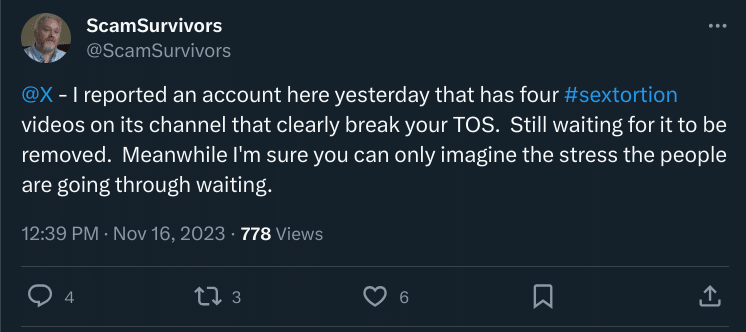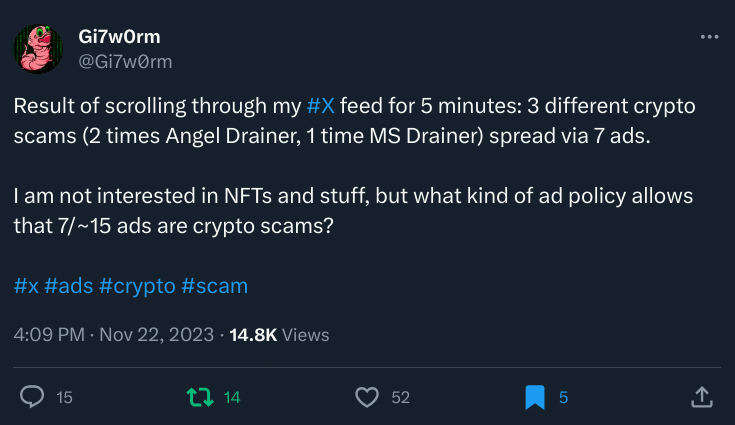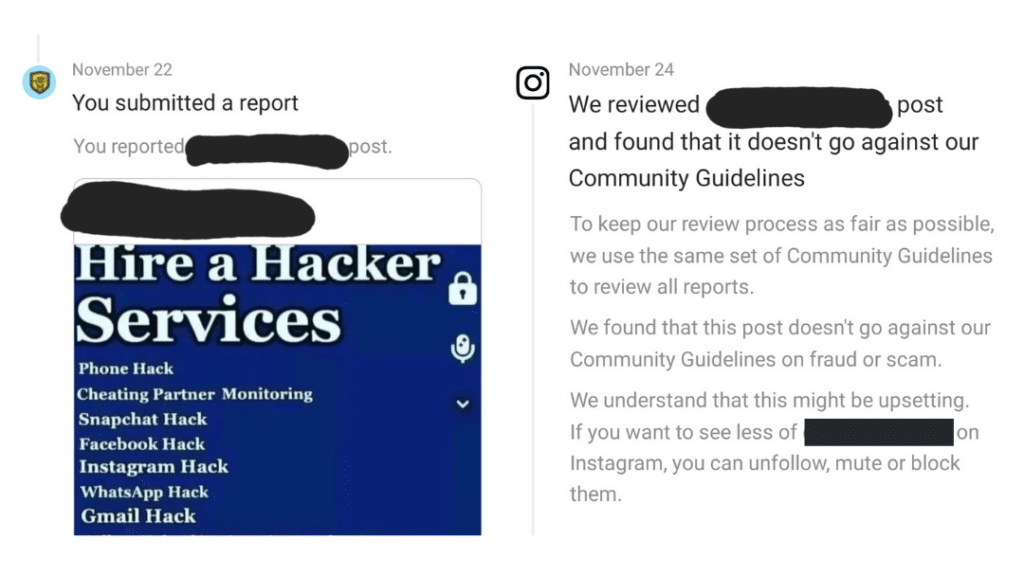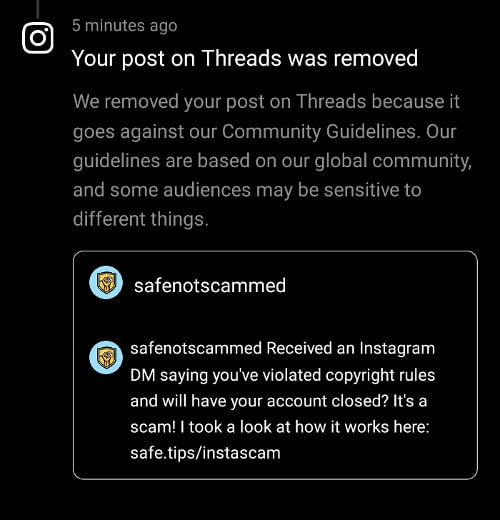Last updated on January 15th, 2024 at 04:12 am

Social media is a scammer’s paradise. From sextortionists to crypto scammers to AI deep fakers, you’ll find them lurking on your favorite social media site. And while you’d hope social media companies would be working hard to boot scammers off their platforms, they seem to be struggling to do so.
Here I’ll look at some recent social media scam activity and how the platforms responded.
X marks the spot for scammers
Let’s start with X, formerly Twitter. Just over two weeks ago, ScamSurvivors discovered an X account posting sextortion videos. If you don’t know, sextortion is a common scam that often targets children, particularly teenage boys.

The scammers convince their victims to send nude photos and videos and then threaten to expose them if they don’t meet their demands, such as sending money or more explicit material. Sextortion has tragically been the cause for several suicides, including a boy as young as 12.
While you’d think the account posting sextortion videos would be swiftly removed, X told ScamSurvivors it did not violate the company’s terms of service. Worse, it took X a whopping 15 days to come up with this response, and ScamSurvivors noted that the sextortion account even appeared on his “who to follow” list.

X also has a big problem with scam ads, which is perhaps not surprising given that its owner, Elon Musk, has a propensity to bleed legitimate advertisers. X user Gi1w0rm, a threat intelligence analyst, reported seeing seven crypto scam ads after browsing X for just 5 minutes. Gi1w0rm later found 83 different websites pushing the same scam: a crypto wallet drainer.
It’s opposite day at Meta
Besides X, Instagram is a great place for scammers to find new victims. Recovery scammers, who prey on those who have already been scammed, seem to flourish on the platform. After seeing one such obvious scammer promising to recover stolen crypto on my feed, I reported their posts to Instagram. A few days later, Meta told me the account did not violate the company’s policies.

I then reported a separate post from the same account, which told users to “DM For Any Kind of Hacking Services,” including “Phone Hack, Cheating Partner Monitoring, Snapchat Hack, Facebook Hack, Instagram Hack, WhatsApp Hack, Gmail Hack, College/School/University Grade Change, Social Media Account s Recovery, Negative Review Removal.” Meta again told me that this post “doesn’t go against our Community Guidelines.”
If such blatant scams don’t go against Meta’s policies, what does? Apparently, a post I made on Threads warning about a scam that uses the threat of copyright violations to steal Instagram account credentials. That’s right, a post warning users about a scam was removed for violating their Community Guidelines.

Threads even blocked my domain, safenotscammed.com, meaning I can no longer link to my blog posts on Threads, and presumably other Meta platforms as well.
While I requested a review of Meta’s decision on November 18th, I have not yet been informed of the outcome.
YouTube forces scam ads on non-premium users

Finally, let’s look at what’s going on over at YouTube. The video sharing platform has recently started to force users to disable their ad blockers or pay $13.99 a month to subscribe to YouTube premium. Worse, those who can’t or won’t pay the hefty monthly fee are being bombarded with shady ads.
One particularly common sketchy type of ad tells viewers they are eligible for a $6,400 health subsidy. Often, these ads involve an AI voice over from celebrities like Joe Rogan.
The ads direct the viewer to visit a dubious website and answer a few questions to check if they qualify. However, from my experimentations, you are told you qualify no matter what answers you give.

Potential victims are then instructed to call a number to claim their “allowance card.” I did not call the number to find out what happened next, but it can’t be good.
Users of the r/scams subreddit have been discussing these AI generated subsidy ads for months, so it’s disappointing YouTube has not yet blocked them from its platform.
The takeaway
Scammers love social media, so keep your wits about you while doomscrolling on Twitter, posting selfies to Instagram, or binge watching YouTube! And if you spot a scam, drop me a line at [email protected] and I’ll do my best to investigate!
